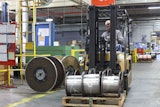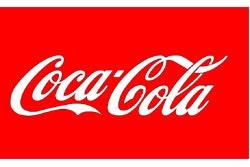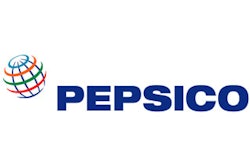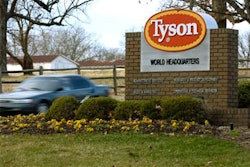This article originally ran in the October 2012 issue of Food Manufacturing.
According to “Developing & Engaging the Manufacturing Workforce,” a white paper released by the Manufacturing Excellence Share Group (MESG) of the Alliance for Innovation & Operational Excellence (AIOE), consumer packaged goods manufacturers (CPGs) contend with hiring challenges that stretch from mechanical knowledge to generational differences. The AIOE group has developed the paper in conjunction with a Booz & Co. study and panel discussion in which more than a dozen manufacturing executives spoke about hiring, training, skill requirements and development, operational styles, and new ways to uncover talent. Food Manufacturing spoke with Dan Sileo from Sunny Delight Beverage Co., one of the brand owners who participated in the study, to gain more insight into how this issue is impacting the snack food and beverage industry.
Q: What unique challenges present themselves in a beverage processing environment that require plant-floor workers to acquire a specific skill set? What is the best way to instill industry-specific knowledge into the workforce?
A: I believe the challenges in this area aren’t specific to one industry; they are common across CPG companies. Technology continues to march forward in all aspects of our lives, and the manufacturing floor is no exception. It is increasingly common for industrial computers, servo motors, robots, etc. to drive faster and more complicated machinery as U.S. companies strive to increase their productivity. In general, our schools do not build training modules with this in mind, so finding people with these skills becomes a challenge. Yes, unemployment is high, but if people have not been in the workforce recently, they are at a severe disadvantage when it comes to operating this more advanced equipment. There are training initiatives coming on line, such as the Certificate Programs focused on Mechatronics that PMMI developed in partnership with the Mid-Atlantic Mechatronic Advisory Council and several packaging and technical schools like the one at Reading Community College, but they are too few and far between.
Q: How has Sunny Delight bridged the gap between workers and their managers?
A: We are lucky in that we inherited our legacy High Performance Work System from P&G and we have continued to evolve it. The system empowers autonomous teams to run the business. So, for example, at night, we do not have supervisors or team managers on shift. Sunny Delight plants normally have a ratio of 24 hourly paid workers or technicians per one supervisor or manager. We truly believe that our employees are our most valuable asset, and even though this is a cliché, we invest in training courses to help the whole person whether it is the Speed of Trust, Financial Peace, Lean Manufacturing, etc. Most people cannot tell the difference between our managers and technicians when they visit our plants.
Q: How has Sunny Delight fostered employee buy-in when it comes to food safety protocol and quality assurance concerns? How does this impact the finished product?
A: We take plant safety, food safety and product quality very seriously. We have a hard time separating these issues, as we know each of them can have an impact on the company, the families of our employees or the consumer if not executed properly. And our employees get that. We have not had a single product recall since becoming an independent company. We have rigorous processes in place that have been developed over many years and are currently in the middle of getting our plants through the SQF process. Our employees own most of these systems, so as we geared up for SQF, we did not have to hire any more people. Instead, we learned new things, evolved our systems and made some upgrades to our facilities to comply with the new requirements we learned about along the way. I’m happy to say we’ve done very well. In fact, we have passed every desk and facility audit so far on the first visit.
Q: Sunny Delight uses mentorship arrangements as part of its leadership training program. How are mentors themselves trained and paired with trainees? What does the mentorship relationship look like?
A: We have a Workplace Excellence Leadership Development course that was developed by our Atlanta Plant Director, Amir Ghannad. It is five-day immersion course, followed up with 13 weeks of training and mentorship as people execute their “BHAG” (Big Hairy Audacious Goal). The mentorship helps people overcome hurdles that may have stopped them in the past and allows them to see the power they have to move the business forward. We use this process in the plants as well as in our headquarters and it is well received because people have a support structure, rather than five days of training where they are just being told to just go ahead and execute. It is very powerful.
The full study is available for free and can be downloaded from http://community.pmmi.org/Alliance/Home. PMMI and Charter Partner GMA launched The Alliance for Innovation & Operational Excellence in 2011. The Alliance brings together operations executives from consumer product companies and their upstream suppliers to address key industry issues and establish best practices. Learn more at http://alliance.pmmi.org.
Interview by Krystal Gabert, Editor























